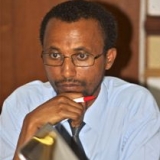Water resources are essential to human development processes and to achieve the Millennium Development Goals that seek, inter alia, to eradicate extreme poverty and hunger, achieve universal literacy, and ensure environmental sustainability.
Expanding irrigation is
essential to increase agricultural production, which is needed to
achieve economic development and attain food security in much of
sub-Saharan Africa. Water resources and irrigated agriculture are not
developed to their full potential. Currently less than 4% of renewable
water resources in Africa are withdrawn for agriculture. Barriers
include the lack of financial and human resources to build irrigation
and related rural infrastructure and acquire agricultural technology,
and inadequate access to markets. This constrains progress towards
poverty reduction. We examine the linkages between agricultural water,
education, markets and rural poverty through a review of published
studies. We argue that, linking agricultural water, education, and
market interventions, which are so often implemented separately, would
generate more effective poverty reduction and hunger eradication
programs. Investments in agricultural water management and complementary
rural infrastructure and related policies are the pathways to break the
poverty trap in smallholder African agriculture.
